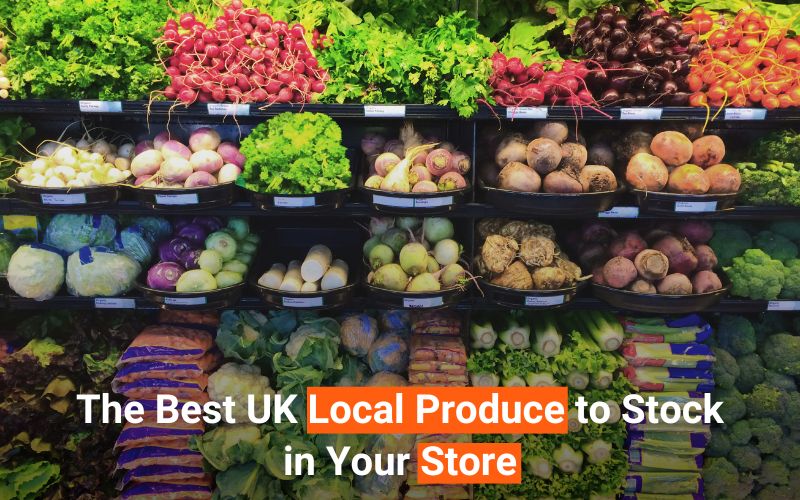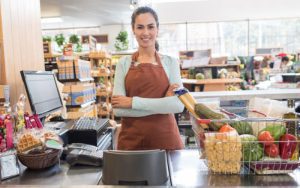As a Food Retail Wholesaler in UK, stocking local produce is a great way to support local farmers and producers while also offering high-quality, fresh produce to your customers. In this guide, we will explore the best UK local produce to stock in your store and provide tips on how to source, market and stock them effectively.
Why Stock Local Produce?
There are many reasons to stock local produce in your store. For one, it’s a great way to support local farmers and producers who often struggle to compete with larger, more established brands. By sourcing local produce, you can help to sustain these smaller businesses and contribute to your local economy.
Additionally, local produce is often fresher and of higher quality than imported produce, as it doesn’t have to travel as far to reach your store. This means that it has a longer shelf life and is less likely to spoil, which can help you to reduce waste and save money in the long run.
Finally, customers are increasingly interested in buying local produce, as they value the freshness, taste and environmental benefits that come with it. By stocking local produce, you can tap into this growing trend and attract more customers to your store.
Popular UK Local Produce
There are many types of local produce that are popular among UK customers. Some of the most sought-after items include:
- Apples: The UK is known for its delicious apples, which come in a variety of different varieties and are grown in many regions throughout the country.
- Berries: Berries are another popular local produce item, with strawberries, raspberries and blueberries being among the most popular.
- Cheese: The UK is home to many delicious artisanal cheeses, including cheddar, stilton and Wensleydale.
- Meat: Meat is another popular local produce item, with beef, pork and lamb being among the most sought-after.
- Vegetables: UK-grown vegetables such as potatoes, carrots, onions and greens are always in demand.
- Fish and Chips: One of the most well-known British foods worldwide is Fish and Chips, consisting of deep-fried cod and chips. This classic English meal is often served wrapped in paper, accompanied by salt and malt vinegar.
Where to Find Local Produce
To source local produce for your store:
- You can start by contacting local farmers and producers in your area.
- You can also attend local farmers’ markets or join a local food cooperative to connect with producers and farmers in your community.
- Many wholesalers now offer local produce as part of their inventory. By working with a wholesaler that specializes in local produce, you can streamline your sourcing process and ensure that you are getting high-quality, fresh produce that your customers will love.
Marketing Local Produce
To market local produce effectively, it’s important to highlight the benefits of buying local to your customers. You can do this by creating signage that emphasizes the freshness, quality and environmental benefits of local produce. Additionally, consider offering promotions or discounts on local produce to incentivize customers to try it out.
It’s also important to showcase the stories and personalities behind your local producers. By featuring their stories and products in your marketing materials, you can help customers to connect with the people behind the food and+ build loyalty to your brand.
The importance of supporting local farmers and producers
Supporting local farmers and producers is crucial for several reasons:
- Boosts the local economy: By purchasing locally grown produce, you are supporting local businesses and the local economy. This, in turn, creates jobs, increases the demand for local products, and helps to keep money circulating within the community.
- Reduces carbon footprint: By buying locally, you are reducing the distance that the products have to travel from the farm to the store. This means less transportation emissions and a smaller carbon footprint.
- Provides fresher and healthier produce: Local farmers often sell their products soon after harvest, which means that the produce is fresh and has higher nutritional value than produce that has been transported over long distances.
- Preserves farmland and supports sustainable agriculture: When local farmers are able to make a living from their land, they are less likely to sell it for development purposes. Additionally, supporting sustainable agriculture practices can help to reduce the negative impact of farming on the environment.
- Builds community connections: Purchasing from local farmers and producers allows for direct communication and relationship-building between consumers and growers. This can lead to increased trust and a deeper understanding of where food comes from, which is essential in building a healthy and sustainable food system.
Supporting local farmers and producers is not only beneficial for the local economy and environment but also promotes a healthier and more sustainable food system while building stronger communities.
Read More: The Future of Food Retail: How Technology is Changing the Game for UK Wholesalers
Conclusion:
Overall, stocking local produce is a great way to differentiate your store, attract more customers and support your local community. By following the tips in this guide, you can source, market and stock local produce effectively and help to build a stronger, more sustainable food system in the UK.





